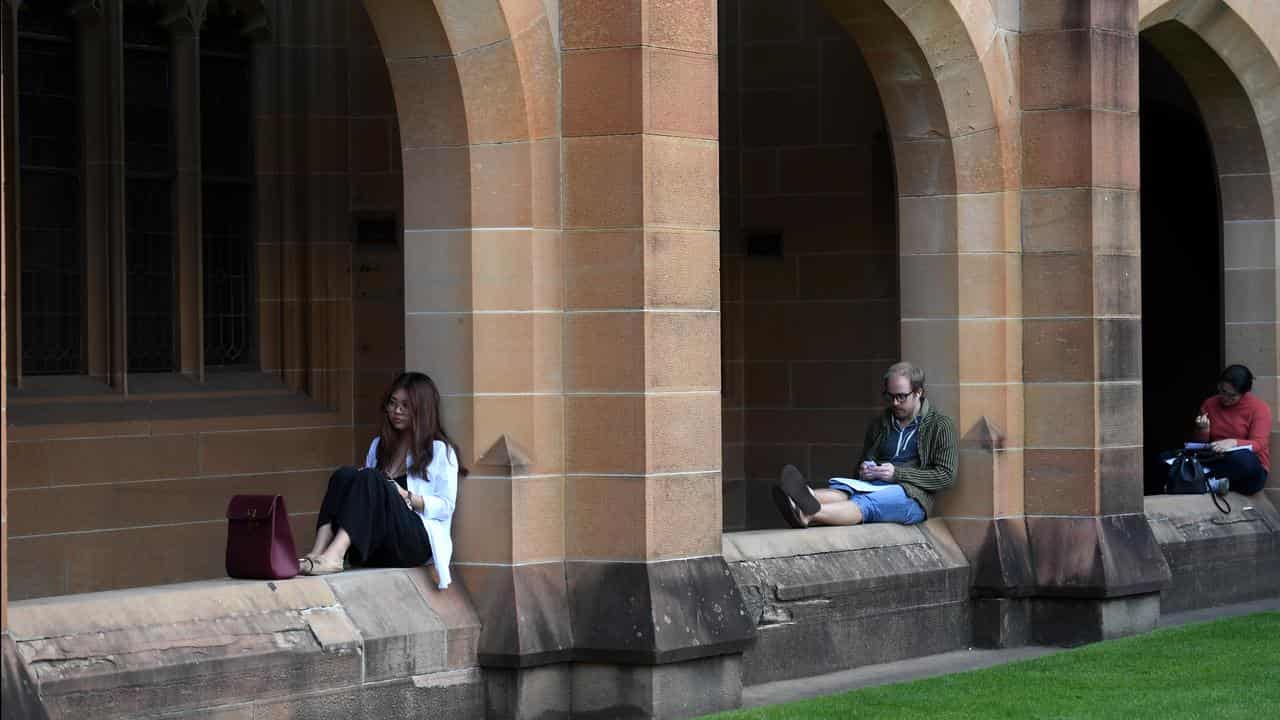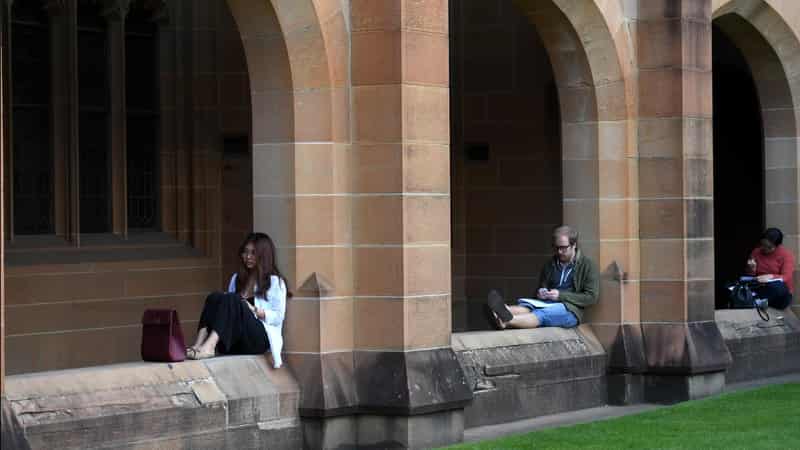
Australian university chiefs have been grilled over scrapping a sexual consent campaign at campuses across the country.
Universities Australia chief executive Catriona Jackson confirmed some of the organisation's members, including vice-chancellors from multiple tertiary institutions, raised concerns about the campaign.
"A number of members raised entirely valid concerns about how applicable one set of messages would be across that breadth of 1.4 million students from a really broad range of backgrounds," she told a parliamentary committee examining Australia's consent laws.
"Whether, very importantly, the campaign materials would have the cut through, and that view was reinforced absolutely in the additional focus group testing we did.
"It was a broad, intelligent, nuanced conversation with the members."
Ms Jackson said trying to effect change in behaviour was complex and members decided it needed more focus group testing before rolling out a campaign.
She said Universities Australia members had not yet decided whether to run a future student safety survey.
"Australia's universities take our responsibilities to address sexual harm very seriously," she said.
"We have not shied away from confronting this issue."
Greens senator Larissa Waters questioned why it was not obvious universities should continue testing whether or not programs had worked to ensure students were kept safe.
Earlier, legal experts warned against national consent definitions to address low sexual assault conviction rates and instead called for better survivor support services and significant investments in the justice system.
Law Council of Australia president Luke Murphy said there was limited evidence to suggest uniform consent definitions would mean higher reporting and conviction rates of sexual assault.
"We encourage the pursuit of other measures such as strengthening protections for complainants and victim survivors," he said.
"These changes are more tangibly directed to the experience of giving evidence in the courtroom and may have a greater impact than sexual consent definitions.
"The criminal justice system is, on its own, a poor vehicle to achieve social change."
The law council supported a communicative consent model, which still required positive consent from both people involved but did not have the extra element from the affirmative model which would require an accused person to show what they did to establish consent.
The council also clarified its submission, which classified young people and those with a disability as vulnerable groups who could be criminalised by changes to legal definitions.
Mr Murphy said that section of the submission should have been read alongside the council's call for greater levels of community education about what consent was for complainants and accused people.
"We are emphasising the particular need to have targeted awareness and education programs for the vulnerable groups because of their disproportionate representation in this space," he said.
The president said the council was not suggesting affirmative consent laws would be unfair to young men, as boys between 15 and 19 had the highest rate of sexual offending in Australia.
"Our concern is the design of any legislative model must be to ensure it is good law and effective law because if it's not, then we do a disservice to those we are giving false hope to and that's worse," Mr Murphy said.
But criminal law and justice expert Julia Quilter said addressing sexual violence in Australia was so important all opportunities to achieve national law harmonisation should be explored.
"All Australians are entitled to a single standard on ethical sexual activity," she said.
1800 RESPECT (1800 737 732)
National Sexual Abuse and Redress Support Service 1800 211 028
Lifeline 13 11 14









